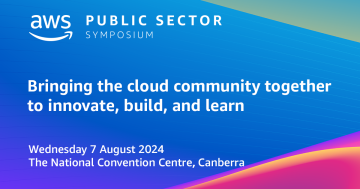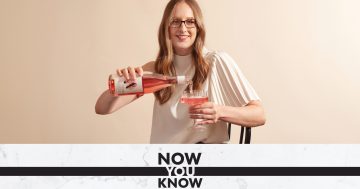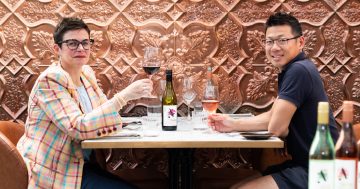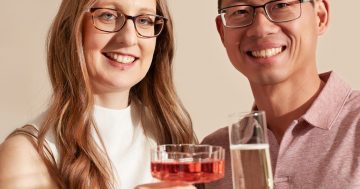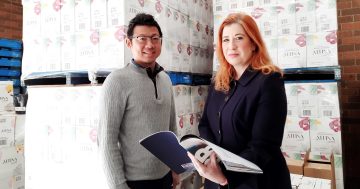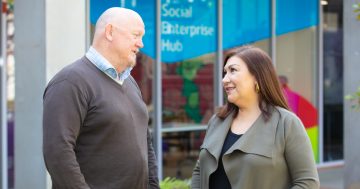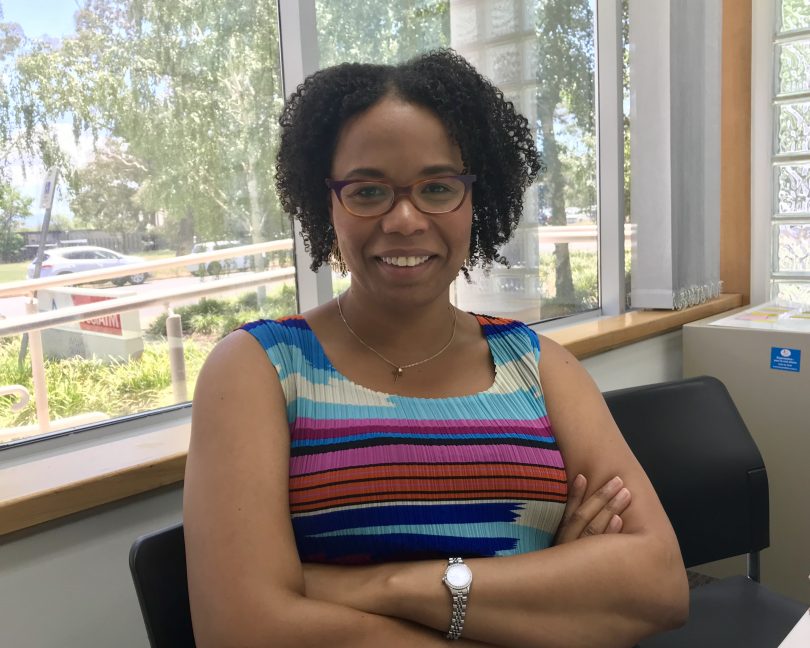
Millhouse Ventures founder Cindy Mitchell believes that doing good business can also do good. Photo: G Jacobs.
There’s an odd belief that doing good and making money don’t go hand in hand. Cindy Mitchell doesn’t subscribe to that school of thought. The dynamic US-born businesswoman and founder of Millhouse Ventures is working flat out to help people to make money while changing the world for the better.
Cindy has been in Australia for 15 years with a background in business development, sales and venture capital. She got involved with social enterprise about seven years ago when she founded No Sweat Fashions, which provided employment opportunities for migrant and refugee women.
“To be honest I was sick of the entitled people I’d worked with in the business world and their expectation that they would be supported. They were highly educated, they had good social capital and backgrounds and I could help them become richer than they would be otherwise. And I was kind of over that,” she says.
“But when you invest time in women, when you invest time with people from low-income backgrounds and use this tool of entrepreneurship to change things for people who have barriers to mainstream access, it’s like Wow! I saw the power of capitalism to do good, not just perpetuate disadvantage and inequalities.”
Cindy says that the Millhouse model looks for ventures that have the potential to make income but will also have a measurable impact either socially, culturally, economically or environmentally. Millhouse itself has support from the University of Canberra, Service One, the Canberra Innovation Network, Snedden Hall and Gallop and Social Traders.
If applicants are successful, they enter staged programmes that give participants advice and mentoring, an entrepreneurial education and targeted assistance such as introductions to potential partners and customers. In two years, they’ve worked with over 30 organisations.
Millhouse helped Christina Delay and Alan Tse launch Altina this year, meeting a gap in the market for zero proof craft cocktails, “drinks that are beautiful and complex in flavour, that look really good and taste great but don’t have any alcohol in them.”
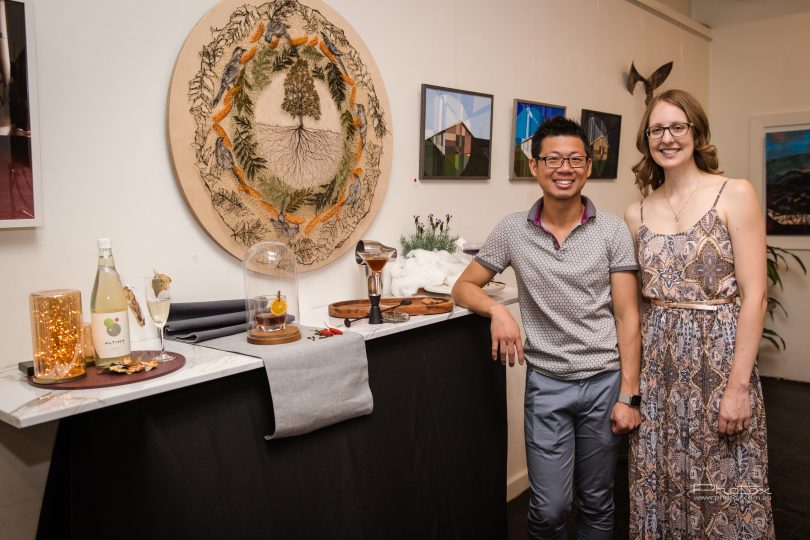
Altina founders Alan Tse and Christina Delay at their launch party in Lyneham. Photo: Photox.
Christina has a PhD in Plant Biology and both partners had worked in consulting, where there’s a significant drinking culture. “I found myself getting caught up in it because it was a social thing and also about building work relationships,” she says.
“When I started getting health problems, I stopped to question what I was drinking, how and why. It had happened so easily that I almost didn’t notice. Talking to a lot of my colleagues they’d had the same experience and I thought, I’m perfectly placed to create an alternative.”
“Honestly we wouldn’t have actually started our social enterprise without Millhouse. Running our ideas past Cindy and then getting accepted was the validation we needed to say this is a good idea and there’s a way for us to build it as a social business.”
Cindy Mitchell says the key difference with a social enterprise lies in the motivation. “Altina need to find other people who care about Australian drinking culture, bring people on the journey and generate goodwill and a social license. Yes, we think that will help them commercially, but it will also help them have a lasting sustainable impact.”
The first stage in the programme is Grist, where the business idea and its potential social impact are examined from all angles. Altina went through several iterations of their plan before market testing via a successful crowdfunding campaign. They’re now in the Refine stage, where Millhouse continues to provide support to scale the model.
Cindy Mitchell says that many Millhouse clients are people in the community sector who have an interest in a particular problem. They’re likelier to be older, to be women and to be more culturally diverse than average business accelerator participants and often have extensive life experiences that have led them here. A number of participants run existing for-profit businesses, and want to pivot towards social enterprise.
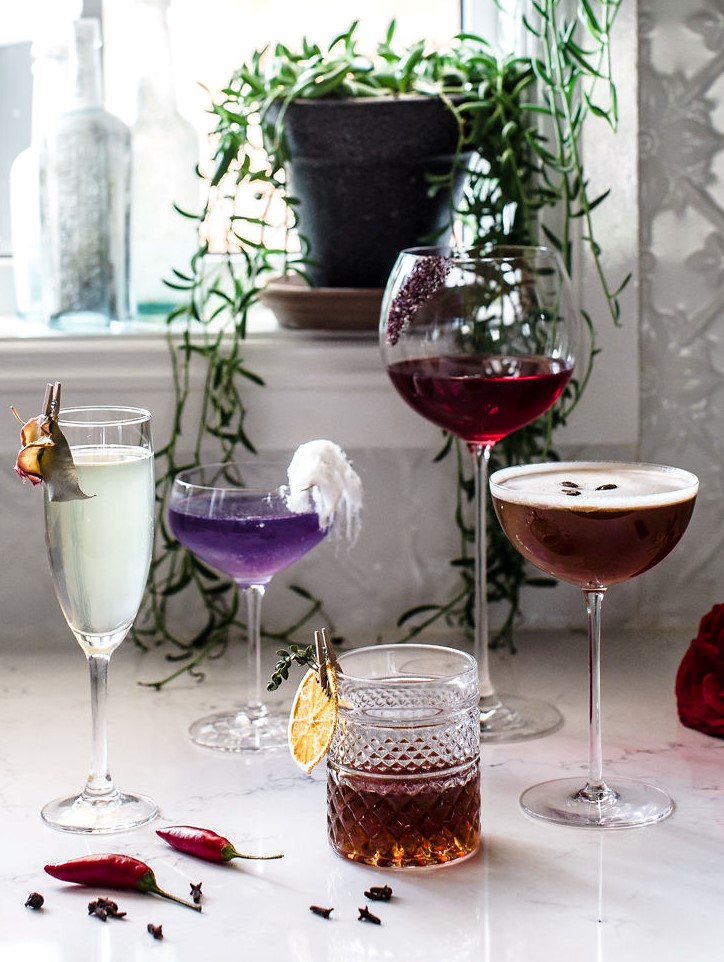
Altina produces zero proof craft cocktails. Photo: Photox.
Altina had a launch at Lyneham a few weeks ago, where over a hundred friends and supporters turned up to raise their non-alcoholic glasses. They’re now focused on getting the product into Canberra’s bars and restaurants and running events.
“The short-term goals are here in Canberra,” Christina says. “Going beyond that, we want to have an impact on the overall drinking culture in Australia, to get more people thinking about when they’re drinking, how often they’re drinking and how that affects their whole lives.”











